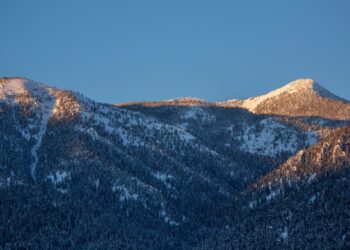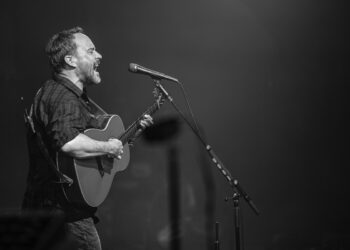By Jack Reaney SENIOR EDITOR
On Jan. 2, the Resort Tax board spent hours settling on potential voter-approved bonding to fund two large infrastructure projects: the Cold Smoke workforce housing development, and Big Sky Community Park renovation.
The bonds totaled up to $66.8 million, although local voters will decide in May whether to authorize the Big Sky Resort Area District to take on the long-term public debt.
The process is inherently complicated, and the board faced a tricky question during its regular meeting on Thursday, Jan. 9: should ballots combine the $45 million Cold Smoke land acquisition with the $6.8 park renovation, or should voters decide separately on the two projects?
Additionally, a $15 million bond accounts for Cold Smoke infrastructure, which would be funded from a separate pool of resort tax money and therefore must appear on the ballot separate from the $45 Cold Smoke land acquisition.
The board’s thorough discussion, including public comment, did not yield a clear solution. Bundled or separate, individuals expressed merits and drawbacks of each route, so the board asked the leaders of each sponsoring organization: David O’Connor of the Big Sky Community Housing Trust, and Whitney Montgomery of Big Sky Community Organization, who both agreed it would be best to bundle the $45 million land acquisition and the $6.8 park renovation into one ballot item.
Montgomery said Big Sky is facing a big-picture question that unifies and overshadows the two projects.
“Are we going to become a community for all? Or are we going to become an exclusive resort town,” Montgomery said. “… My hope is that we look at this bond as a step forward for our community to be accessible to more people.
“So, if bundling them provides a better opportunity for that, then I’m 100% for that… I think putting them together would be perfectly appropriate given that the fact that this is a much bigger question, in my opinion, for our community.”
O’Connor said combining the projects on the ballot will enable BSCHT and BSCO to communicate an efficient, unified message to educate voters ahead of the May election.
He added that the projects are not an “either-or” proposition for the community—they aren’t competing with each other, and keeping the items separate might imply to voters that they ought to pick just one.
Board member Sarah Blechta expressed concern that voters might vote “no” for both for the sake of killing one item in the bundle, even if they would support the other, but acquiesced after hearing from Montgomery and O’Connor.
Once the board agreed to bundle, board member John Zirkle foreshadowed the communication efforts needed to educate voters ahead of the May election—also on the ballot, voters will decide on extending the authority of Resort Tax from 2032 to 2065, and the confirmation of interim board member Michelle Kendziorski.
Zirkle suggested that Resort Tax be “overly aggressive” to ensure as many community members as possible understand the issues being settled on the ballot.
“I people to be sick of us by May,” Zirkle said. “I want them to say, ‘stop talking about this.’ I don’t want anyone to say, ‘I didn’t know about this.’”
Early on in the meeting, BSRAD Executive Director Daniel Bierschwale pointed out that if members of the public feel Resort Tax is moving too fast on decisions regarding bonding, they have had months to express their concerns to the board.
“The time is now,” Bierschwale said. “The time is last meeting. The time is the December meeting, the November meeting, the October meeting, and then the February meeting, to make public comment. There is no other opportunity… to make public comment. So, speak now, or forever hold your peace.”
The board will meet on Tuesday, Feb. 4 at 1 p.m. to finalize the language for the ballot items voters will see in May.
Microgrants to support child care, immigrant advocacy group
In regular activity unrelated to long-term bonding, the BSRAD board voted unanimously to support two initiatives with $25,000 each through BSRAD’s microgrant program.
First, the board funded the Big Sky Early Childhood Alliance, a three-year initiative to convene local providers and stakeholders to improve childcare in the Big Sky community. The new alliance is led by Greater Gallatin United Way, which stepped up to further support regional needs after the closure of Child Care Connections.
Second, the board granted $25,000 to Bienvenidos a Gallatin Valley to fund five years of software to help Bienvenidos keep track of hundreds of Spanish-speaking residents living or working in Big Sky, as they engage with the nonprofit.
The board requested that Bienvenidos share non-sensitive data to help BSRAD understand the local workforce and needs of Spanish-speaking workers.











